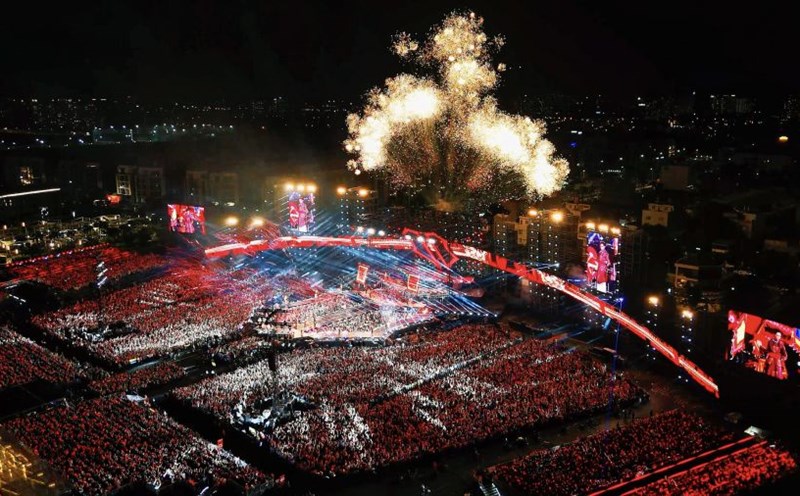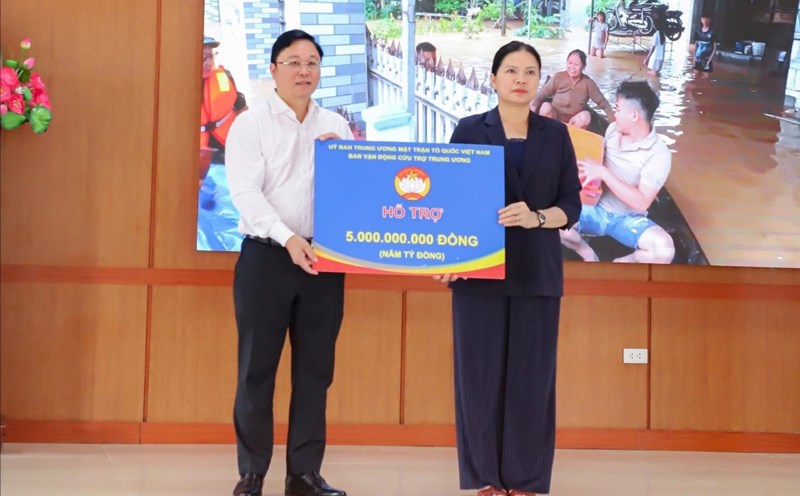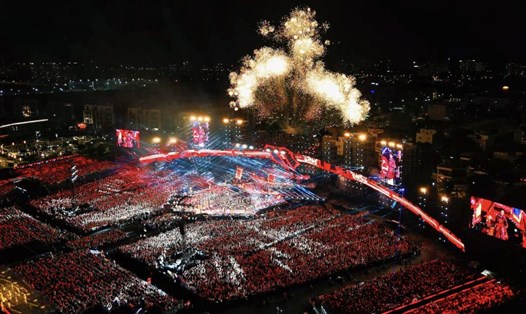Simply put, the music economy is the cash flow generated from music such as: composition, production, performance, copyright, digital distribution to other areas such as tourism, accommodation, cuisine, transportation, retail, advertising.
When organizing a concert that is of good quality and attractive, money does not just stop at the ticket counter, but spreads to hotels, restaurants, means of transportation, and tourist attractions.
But more importantly, it creates a "memory" for the image of the destination, so that tourists, especially international visitors, have a reason to return many times.
Music economy is not a theory but a problem that has been proven, with countless examples that have been proven for a long time in countries with music economy or more broadly, developed cultural industries such as the US, Korea, Japan, China, Singapore...
In Vietnam, the concept of music economy is perhaps most clearly seen and recognized from the Blackpink effect in Hanoi in 2023, with the total number of domestic and international tourists coming to Hanoi for the two days of the concert reaching more than 170,000; the number of people looking to book rooms in Hanoi increased 10 times during the concert days.
More recently, there are famous domestic concerts such as "Anh trai vu ngan cong gai", "Anh trai say hi"; shows by Ha Anh Tuan, My Tam, Den... And most recently, the ticket fever not only domestically but also internationally by G-Dragon in Hung Yen is about to take place.
All are showing that music not only brings emotions, but is also a true "gold mine" for tourism and the local economy for many reasons.
Among them, Vietnam is at an ideal stage to develop the music industry associated with tourism when purchasing power increases, young people are willing to pay for experiences, digital infrastructure develops rapidly.
However, to exploit this "gold mine" long-term and sustainably, it is necessary to have a strategic and synchronous action from the central to local levels.
At the national level, we have a strategy for cultural development, but we still need more - more in-depth and detailed information about the development corner of the "music economy" from international experience, from the legal framework to the support fund for music festivals with destination promotion factors.
Especially the strategy of promoting Vietnamese music and international events in Vietnam as a special tourism product, instead of the "natural attraction of the scent" as before.
For localities, it is necessary to change the mindset from passive show reception to brand building by identifying unique musical identity based on the needs of tourists to build a fixed annual event schedule. Accompanyed by infrastructure that can meet and satisfy large-scale, international concerts.
Music is proving its power to spread beyond the stage - becoming a new driving force for Vietnam's tourism and economy. The remaining problem is how we perceive and seize opportunities to invest and exploit.













